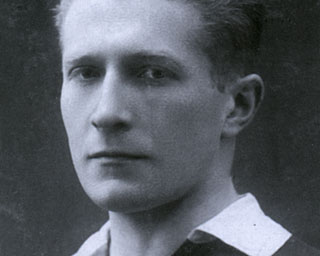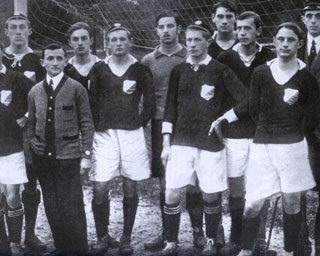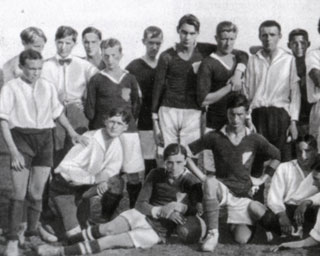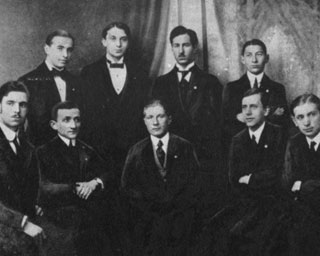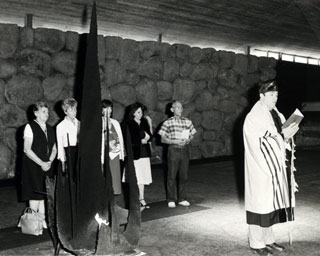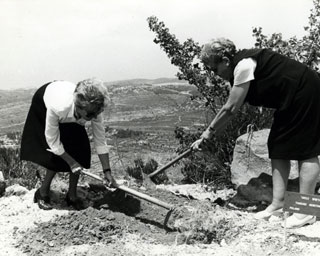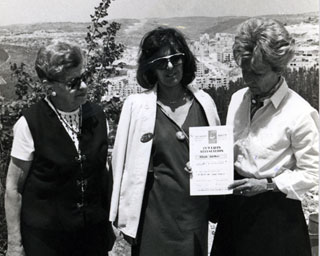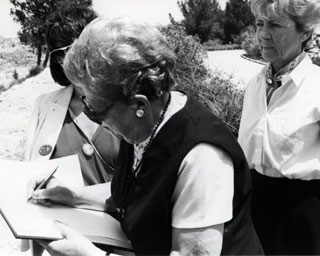Tadeusz Gebethner
Poland

The Gebethner family was well known in Poland. Gustaw Adolf Gebethner had founded one of the largest Polish publishing houses - Gebethner & Wolff. His grandson, Tadeusz, had other interests. He became the first president of the newly founded Polonia sport club and the first captain of its football (soccer) team. Gebethner played in more than 150 matches as midfielder or defender. “Polonia” attracted intelligentsia, lawyers, actors, traders and poets. Unlike some other Polish sports clubs, they also integrated Jewish players and those of other minorities. In 1925 when Maccabi Warsaw marked their anniversary, they invited Polonia to participate in a tournament. Polonia won 4:2 in a match against a football team from Tel Aviv.
When Germany attacked Poland on 1 September 1939, Tadeusz Gebethner joined the army as a volunteer and fought with the 102th Regiment of Uhlans. After the Polish defeat his regiment was interned in Lithuania. Tadeusz escaped from the prisoner camp and went to Vilna, where he found safe shelter in one of Gebethner & Wolff bookstores. It was there that he started his activity in the underground, which he would continue after his return to Warsaw. There the former footballer also became the rescuer of Jews.
In the summer of 1942, after surviving the massacre in Skawina, near Krakow, Ludwika Abrahamer and her 12-year-old daughter, Alina, arrived in Warsaw, where they wandered around homeless and destitute. In desperation, Abrahamer turned to an old acquaintance, a former manager of the Gebethner & Wollf publishing house. The acquaintance, unable to offer the two refugees shelter, directed them to the home of Tadeusz Gebethner, a partner in the publishing house. Although he had never met them, he agreed to take them in. Several weeks later they were joined by Ludwika’s husband, Solomon Abrahamer, who had escaped from the Skawina camp.
Tadeusz Gebethner, who considered saving Jews a human obligation, accompanied Abrahamer to the Population Registration Office, where at great personal risk, he helped him obtain a Kennkarte (identity card) under an assumed name. Moreover, when Abrahamer required an urgent eye operation, Gebethner used his connections to the Polish underground to find a surgeon that was willing to come to the apartment and carry out the operation by candlelight.
One day in 1943, the Polish police, alerted by informers, arrested the Abrahamers. Before they were taken to the Gestapo, however, Gebethner obtained their release by offering the police a large sum of money.
In February 1944, Gebethner arranged for the Abrahamers to move to Hungary, which was considered to be safer before Germany invaded that country. The family survived the Holocaust, immigrated to Israel and settled in Tel Aviv. In 1981 Alina Abrahamer (Gross) wrote to Yad Vashem and asked to have her family’s rescuer recognized. Alina and her mother planted a tree in the Avenue of the Righteous in honor of the courageous soccer player.
As a member of the Polish underground and a colonel in the Polish Army, Gebethner fought in the Warsaw Uprising in August 1944. He became the commander of a sector near Warsaw University of Technology. Gravely injured in a clash, the doctors had to amputate one leg and one arm, but to no avail. On 14 October 1944 Tadeusz Gebethner died of his wounds in a German prisoner of war camp near Magdeburg.
On October 21, 1981, Yad Vashem recognized Tadeusz Gebethner as Righteous Among the Nations.
In 2009 Lukasz Chmielewski, a 26 year old Polish fan of the Polonia team decided to research the history of his football team and wrote to Yad Vashem and sent us photos of Gebethner that he had found. As he explained:
Tadeusz Gebethner should be a model for a patriot, a sportsman, and a man - for every Pole and especially for football fans.
